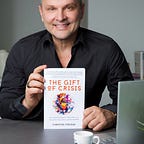The No-Longer-News Problem: How Mass Distraction and Constant Newness Undermine Everything
What happens to the news when it’s no longer news?
I thought of this recently when someone mentioned Zika. Was it a drink? Was it an app? Yes, maybe an app. No, perhaps it was a new fast fashion kind of clothing line? I am not that old yet, but It took me a moment to recall that a couple of years ago, a terrible virus, spread by mosquito bites, had invaded South American and the US, posing a grave threat to the fetuses of pregnant women.
Had the virus gone away, or was it still a problem? And what had happened to the children affected by it? I realized I didn’t have a clue because the story was no longer news.
I felt as though I’d suddenly woken up from a coma. How many other big news stories had I forgotten about in the past year, not to mention the year before?
Once upon a time, refugees from Syria and across the Middle East and Turkey had flooded into Europe. Many of them dying when their overcrowded boats sank in the Mediterranean. What had happened to all the settlement camps and the immigration problem? How do the families and the unescorted children that made it to Northern Europe live now?
What happened with the turmoil and unrest in Honk Kong? Has everything settled? How?
North Korea had shown signs of developing missile technology to launch nuclear attacks on Japan and the US. Now? Crickets.
What is the outcome of the Boing 737 Max investigations for technical problems after the deadly crashes? Do you remember?
The President of the United States got impeached. Really? When?
Wildfires swept up Australia (or was it California?). The UK voted to leave the EU.
Some say that cable news, social media, and the 24–7 Internet have overwhelmed our ability to pay attention to anything that is no longer a big story at the moment. A new book called The Attention Factory talks about how businesses like TikTok hacked our brains and made long-term focus harder while trading our attention for advertising revenues. Others blame COVID and the insanity of 2020 in general.
Yet, just because something doesn’t have our attention anymore doesn’t mean it never happened or no longer exists.
Where do those stories go?
What about the people who we wanted to know more about? What are they doing now?
There must be a market for a news channel or a TV show that reports on the stories we’ve all forgotten. I’d sign up for it if I remembered!
I see this attention deficit disorder as a problem on multiple fronts.
1. By losing track of important events that are no longer in the news, it seems likely that we will also fail to address or solve underlying problems or longer-term consequences.
2. Mentally, it seems unhealthy to clutter our brains with a constant flow of stuff that grasps us intensely for a short time and then disappears…
3. When we continuously keep moving on to the next thing, we also struggle to follow through on plans or build toward a better future. We even lose our creativity as our brain doesn’t have a free capacity to think out of the norm. According to many studies “Boredom can spark Creativity” — no time to get bored today.
This last point seems particularly relevant in the business world. Companies come up with strategic plans, innovations, and new directions all the time. But it’s easy to lose track of initiatives or be swept along by dramatic ever-new events. How can Boards and CEOs create more accountability for performance or outcome goals while also maintaining flexibility and responsiveness? How they can insist on systematic reviews of their previous decisions, eliminating the, what I call, “Planning Bias,” i.e., you plan, and you falsely assume that it is already executed without properly reviewing it.
A year ago, I heard a CEO talk about the problem of distraction in a new way that I found very interesting. The CEO’s name is Michael Acton Smith, and he co-founded Calm.
Smith is a serial entrepreneur. His previous companies, however, such as Mind Candy, prayed initially on people’s insatiable appetite for distraction. (Now, Mind Candy has been reconfigured as a mindfulness tool for children).
After a trend-change decimated his business, Smith got intrigued by meditation and decided to put the same distraction-tools to help people slow down and focus rather than chase the next dopamine high. Today, Calm is the world’s first mental health unicorn.
There’s exponential growth in meeting deeper needs that solve significant global problems.
Bring us the “old news” back,
Free our mind space,
Get bored sometimes,
Stop the Planning Bias (especially for the Corporates),
Focus our collective energy on meaning and purpose.
CTnov20
==========================
Christos Tsolkas is an Independent Business Advisor, Entrepreneur, and Author of the new book, The Gift of Crisis: How Leaders Use Purpose to Renew their Lives, Change their Organizations, and Save the World.
He has spent more than 25 years in positions of significant responsibility (general management, sales & marketing) with multinationals in the fast-moving consumer goods sector, leading senior teams to achieve high performance and change. His educational background in chemical engineering & business, and he is dedicated to continuous learning.
